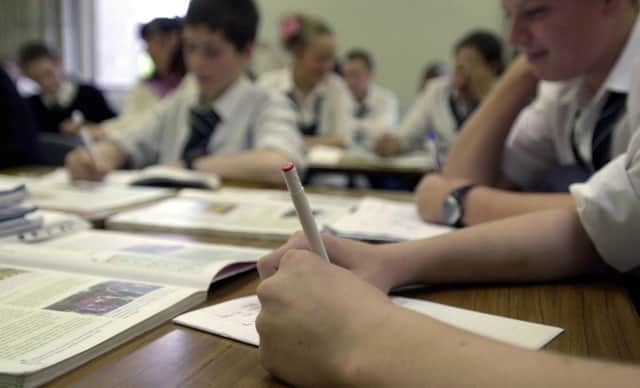Scotland's young generation give me confidence that our future is in safe hands – Karyn McCluskey


She was 32. As I lamented the passing of time and worked out how long ago I must have spoken to her and how old I was, I reflected, eventually, that it’s a huge privilege to be able to influence someone’s future direction, even if that’s only in a small way, whether diverting people from the justice system, or prompting a career choice.
I have always loved the opportunity to go into schools to talk about justice. It formed part of the work I started with John Carnochan in the Violence Reduction Unit, where we wanted to change the ‘norms’ about the causes of crime and how we prevent and deal with the consequences.
Advertisement
Hide AdAdvertisement
Hide AdI’ve realised that from 2003 when we kicked off, we must have spoken to tens of thousands of young people, who will now be in their mid-30s, have children of their own, and be a part of the society we wished to change. Gulp.
There is a network of amazing modern studies teachers across the country, who write regularly to ask me or one of my colleagues to come in to speak to their class, whether it’s 15 and 16-year-olds doing the Nat 5 level, or the Advanced Higher classes, who get to study justice in more depth. I always marvel at how smart and thoughtful the students are. I can’t remember being like that when I was the same age.
What’s particularly refreshing is that they can take in information and change their minds. When I talk about the impact of stress and trauma, about life choices not being created equally, I can almost see them assimilating the information.
It’s so much more difficult as we get older, where it can often seem like a personal defeat to admit we have changed our opinions, that the evidence presented to us is so overwhelming that to ignore it would put us firmly in the Flat Earth Society.
I always start off asking them what they would do in a particular case, then work through the social determinants of health and well-being, the factors in which people are born, grow, work, live, and age, and the forces and systems that shape people’s daily lives. Housing, education, unemployment and so the list goes on.
These are young people who get it, who often are subjected to many of these factors in their own families, and who know the struggles of trying to survive and thrive. I touch on domestic abuse, violence, imprisonment and addiction, knowing some in the classes will know some of these topics intimately. They engage, have opinions on what needs to change, get animated and often angry at injustice.
I was lucky enough to speak virtually to Woodfarm High School in Glasgow last week, to a group of fourth-years in masks along with their teacher starting off their modern studies. Despite all the challenges of Covid and the learning environment, they were amazing, smart and engaged. I don’t know how many people you need to change to make a difference, but I feel my future is safe in their hands.
Karyn McCluskey is chief executive of Community Justice Scotland